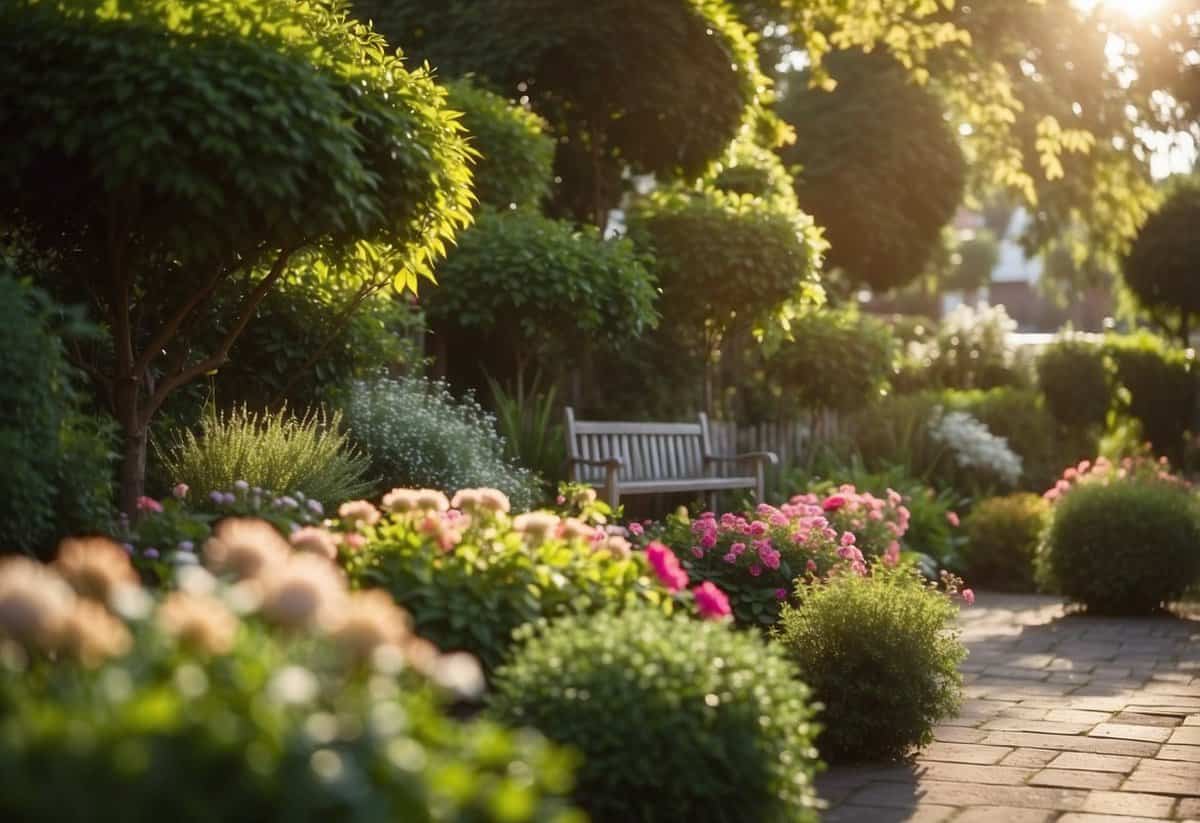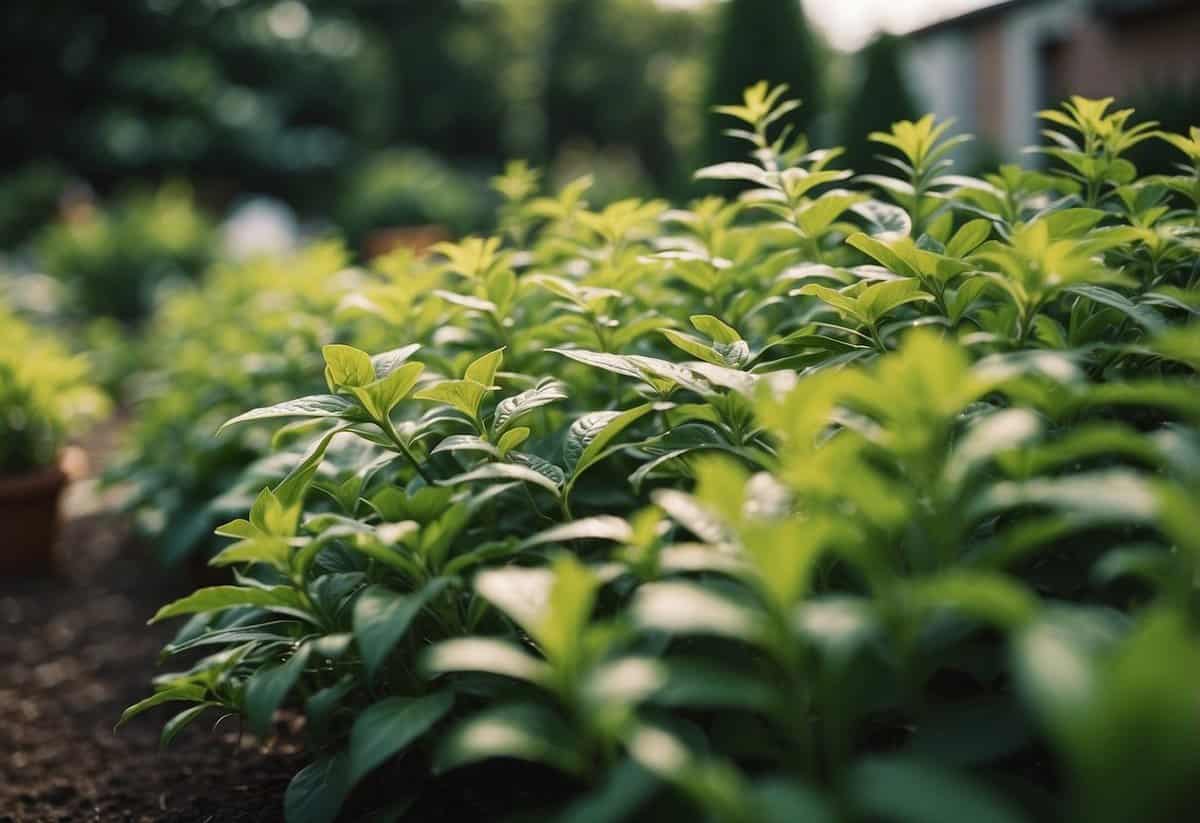Alan Titchmarsh Garden Tips: Easy Ways to Transform Your Backyard
Looking to improve your garden with expert advice? Alan Titchmarsh, a well-loved gardener and TV personality, has decades of experience in making outdoor spaces more beautiful. Whether you have a small, narrow plot or a large backyard, you’ll find his insights helpful.

Discover how Alan’s tips can transform your garden. You’ll learn practical advice that makes gardening enjoyable and manageable. From creating the illusion of space to growing your own produce, Alan’s expertise is invaluable for any garden enthusiast.
1) Regularly prune your plants for healthier growth

Pruning is key to keeping your garden looking its best. It helps remove dead or diseased parts of your plants. This allows new, healthy growth.
Always make your cuts just above a red bud. Cutting too far above can cause dieback.
Alan Titchmarsh suggests removing faded flowers. This encourages plants to produce more blooms. Regular pruning also improves air circulation and reduces the risk of pests.
2) Use compost to enrich soil nutrients

Compost is a great way to improve your garden soil. It adds essential nutrients that plants need to grow strong and healthy.
Mix green waste like grass clippings with brown material like dried leaves. This combination helps break down the compost into rich, fertile soil.
Top dressing with compost is simple. Just spread a thin layer on your garden beds. The nutrients will slowly work their way into the soil.
For more details on creating compost, visit Tea-break Tutorials with Alan Titchmarsh.
3) Water Plants Early in the Morning

Watering plants early in the morning is a great habit. At this time, the sun is not too hot and the water can soak into the soil.
Morning watering helps the plants stay hydrated throughout the day. It also reduces the chance of diseases caused by wet leaves.
If you’re looking for tips from experts, check out Alan Titchmarsh’s advice on how to take care of your garden.
4) Create a Planting Calendar

Creating a planting calendar is key to keeping your garden organized.
You need to know the best times to plant and harvest different crops.
List out what you want to grow and when each should be planted.
Mark these dates on a calendar or journal.
Follow these reminders, and your garden will thrive.
5) Rotate Crops Annually

Rotating crops means changing the spots where you plant different types of vegetables each year. This helps keep the soil healthy and rich in nutrients.
By swapping the locations of your crops, pests and diseases don’t get a chance to settle in. It also prevents the soil from getting exhausted.
For example, plant potatoes one year and carrots the next in the same spot. This simple trick can lead to healthier plants and better yields. Learn more about the importance of crop rotation.
6) Mulch to Retain Soil Moisture

Mulching is a great way to keep your garden soil moist. Adding a layer of mulch helps to reduce the amount of water that evaporates from the soil.
Using mulch can make a big difference, especially during hot weather. By covering the soil, you will protect plant roots from the sun and help retain water in the soil.
For the best results, aim for a mulch layer of about 2 to 4 inches. This thickness is enough to prevent water loss but still allows rainwater to reach the soil. This can be especially helpful if you’re looking to retain soil moisture effectively in your garden.
7) Choose Plants Suited to Your Climate

When selecting plants for your garden, it’s important to pick ones that thrive in your local climate.
Some plants handle cold weather well, while others need a lot of sunlight and warmth.
Do a little research or ask a local garden center for recommendations.
Choosing the right plants ensures a healthy, flourishing garden.
8) Install Rain Barrels for Natural Watering

Rain barrels are a great way to collect and reuse rainwater. They help you save money and reduce your water usage. Place them under your downspouts to gather rain from your roof.
Elevate your rain barrels to improve water flow. You can use bricks or pressure-treated wood. This helps increase the water pressure for easier use around your garden.
If you want to avoid spills, consider adding a diverter to your system. This will redirect excess water away when the barrel is full. Using a rain barrel also helps you keep your plants hydrated during dry spells.
9) Use natural pest control methods

To keep your garden healthy, try natural pest control methods. Alan Titchmarsh advises avoiding harsh chemicals and using eco-friendly techniques instead.
For slugs and snails, use barriers like crushed eggshells.
Planting umbelliferous flowers helps control aphids, spider mites, and whiteflies by attracting beneficial insects.
Cover your soil with mulch to prevent weeds and stop soil erosion.
This keeps your garden thriving and eco-friendly.
10) Group plants with similar water needs

When you group plants with similar water needs, it makes your gardening much easier. You can water efficiently without overwatering or underwatering any plant.
This method not only saves water but also ensures that each plant gets the right amount. This can keep your garden healthier and more vibrant.
Try creating watering zones where you place these grouped plants together. This approach works great with different irrigation systems like drip or spray heads. It helps in managing water distribution effectively.
By doing this, you can also reduce water costs and save time on maintenance. Your garden will thank you!
Alan Titchmarsh’s Gardening Philosophy

Alan Titchmarsh believes that gardening should be accessible, environmentally friendly, and in tune with nature’s seasons. He often shares practical advice to help gardeners of all skill levels succeed.
Emphasis on Simplicity
Alan Titchmarsh encourages keeping things simple. He suggests using easy-to-grow plants that require minimal maintenance. This makes gardening less stressful and more enjoyable for you.
He believes in designing gardens that fit well into your lifestyle. For example, if you have a busy schedule, he recommends low-maintenance plants like lavender or rosemary. This way, you can still have a beautiful garden without too much effort.
By focusing on simplicity, you can create a space that is both beautiful and manageable.
Seasonal Gardening
Titchmarsh is a strong advocate for seasonal gardening. He emphasizes the importance of planting and harvesting according to the seasons. This practice helps keep your garden healthy and productive.
He often provides tips on what to plant during each season. For instance, he might suggest planting daffodils in the fall for a vibrant spring display. Seasonal gardening also means enjoying your garden year-round, as each season brings different colors and plants.
By following this approach, you can ensure that your garden looks good and thrives throughout the year.
Sustainable Practices
Sustainability is a key part of Titchmarsh’s gardening philosophy. He champions eco-friendly practices like composting and using natural fertilizers. These methods enrich the soil and reduce the need for chemical products.
He also advocates for water conservation. One of his tips includes setting up a rainwater collection system. This not only saves water but also provides your plants with chemical-free hydration.
By integrating these sustainable practices into your gardening routine, you contribute to the health of the environment while maintaining a thriving garden.
Improving Soil Health

Healthy soil is the foundation of a thriving garden. By composting, using natural fertilizers, and applying effective mulching techniques, you can boost the quality of your soil and ensure your plants grow strong and healthy.
Composting Tips
Composting is an excellent way to enrich your soil. Start by collecting kitchen scraps like vegetable peels, coffee grounds, and eggshells. Yard waste such as leaves, grass clippings, and small branches also work great. Remember to balance green (nitrogen-rich) and brown (carbon-rich) materials.
Turn your compost every few weeks to provide oxygen, which helps break down the materials faster. Make sure to keep the pile moist, but not too wet. Finished compost should be dark, crumbly, and smell earthy.
Using compost regularly in your garden improves soil structure and adds essential nutrients like nitrogen, phosphorus, and potassium.
Natural Fertilizers
Natural fertilizers are crucial for maintaining soil health. These fertilizers, unlike synthetic ones, slowly release nutrients and improve the soil’s organic matter. Fish emulsion, made from fish waste, is rich in nitrogen and can be added to your garden soil for a quick nutrient boost.
Bone meal is another great option, especially for providing phosphorus, which helps root growth. Using compost tea, made by steeping compost in water, can be a quick and easy way to provide nutrients directly to your plants.
Natural fertilizers not only feed your plants but also encourage vital microorganisms that keep your soil healthy and balanced.
Mulching Techniques
Mulching helps retain moisture, regulate soil temperature, and prevent weeds. You can use organic materials like straw, wood chips, or shredded leaves for mulching. Lay the mulch about 2-3 inches thick around your plants, but be careful not to pile it against plant stems to avoid rot.
Mulch also breaks down slowly over time, adding organic matter back into the soil. This process improves soil structure and fertility. By keeping the soil covered, mulch also helps protect it against erosion and reduces the need for frequent watering.
By focusing on these methods, you can ensure your garden soil remains healthy, productive, and rich in nutrients. Happy gardening!







